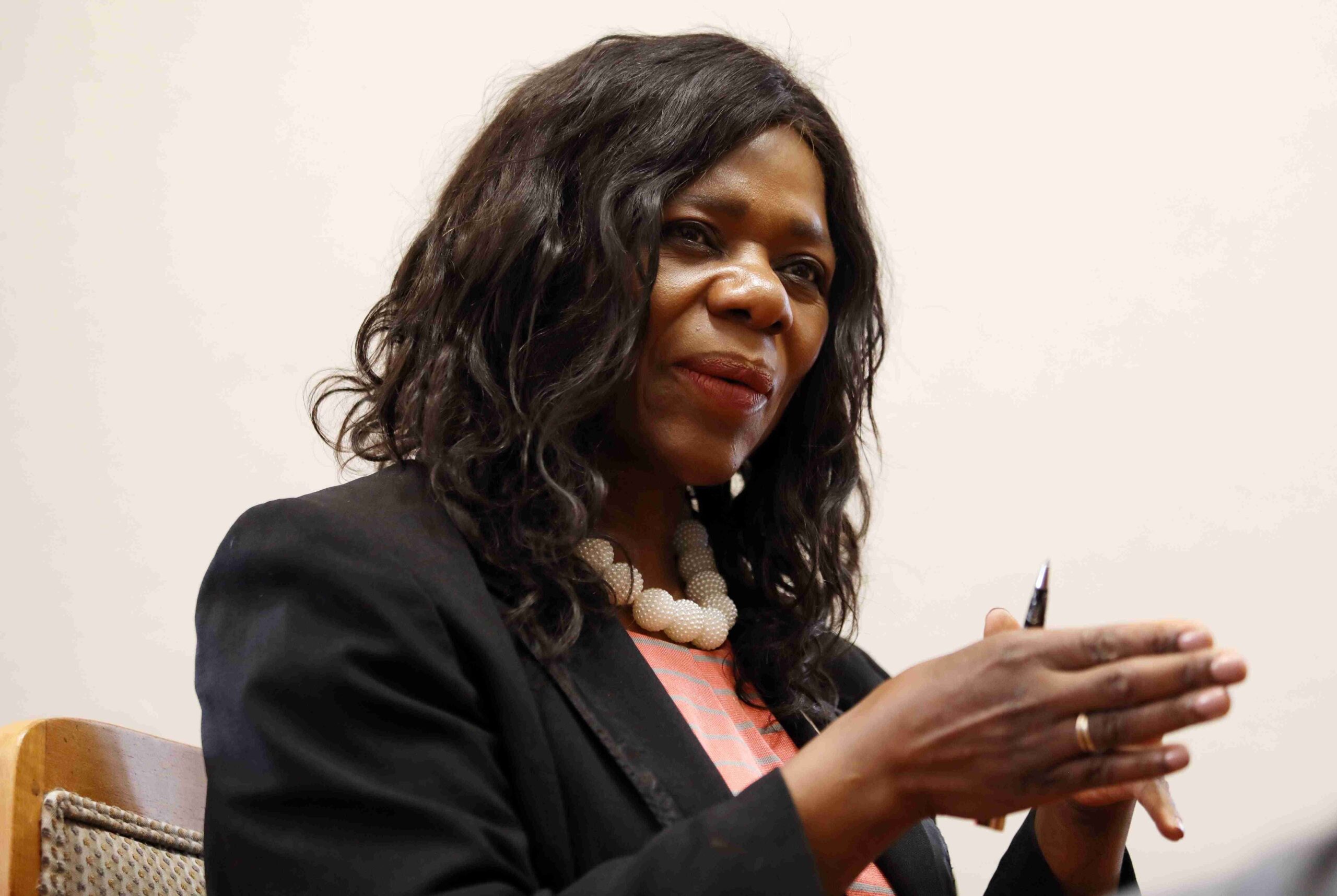In a recent television interview on SABC2, former public protector Thuli Madonsela stated that she would be in favour of amnesty for those implicated in state capture over the past decade. She added that transparency, accountability, responsibility and restitution (in the form of paying back the money looted in this way) would be basic prerequisites for those who would want to avail themselves of the opportunity for amnesty.
Madonsela motivated her opinion by arguing that people would be more inclined to come forward and confess to wrongdoing if they knew that they would be pardoned. She has been criticised for her view; however, I agree with her proposal, albeit for different reasons. My rationale is in support of a paradigmatic shift from our traditional responses to crime management as something like a “military science” of “fighting” crime with violent means, towards managing crime through “peaceful” means.
If we must punish, we should at least do so in a way that does not perpetuate the violence inherent in our dominant sentencing regime, namely incarceration by default. Considering the ways in which prison as an institution, deeply antithetical to the African concept of ubuntu, is violence in response to the violence embedded in crime, it is perhaps time to consider some alternatives.
Our institutions, including but not only prison itself, systematise (and, therefore, naturalise) violence as a standard response to all social problems, including crime.
In the words of Hal Pepinsky, co-founder of one of the critical traditions in criminology, known as peacemaking criminology, the idea that informs this new thinking from violence to peaceful co-operation and existence, is the strategy of “how to transform opposition into negotiation and accommodation of differences”. Although all societies use shame to manage deviant behaviour such as crime, not all societies use it in the same way.
The Australian comparative criminologist John Braithwaite explores this important difference in the societal management of shame in his book Crime, Shame and Reintegration, a text well worth reading for an understanding of the value and benefits attached to an integrative shaming culture (such as those found in China, Japan and many African cultures).
South Africa, by contrast, has a stigmatising shaming culture, which encourages the discrimination against and marginalisation of formerly incarcerated people. This environment ensures, predictably, the cementing of criminal careers, rather than the promotion of former offenders’ sustainable reintegration back into their communities.
As Braithwaite points out, stigma is counterproductive because it drives former offenders into the arms of criminal subcultures and, therefore, is itself criminogenic. No culture, of course, is either entirely stigmatising or integrating. For example, ubuntu has wonderful integrative potential for former offenders who have displayed evidence of personal transformation and wish to be forgiven by their communities.
In China, Mao Zedong, the legendary founder of the Peoples’ Republic of China, wisely declared in a famous speech in the 1950s that 95% of all offenders can be completely reformed. What Mao had in mind, however, was the brainwashing (shi-nau) of his political enemies. Hopefully, the arrogance displayed by Duduzane Zuma’s shameless defence of the Guptas, does not qualify him as one of the unrepentant 5%.
For this group who resists rehabilitation, the Chinese prescription for the crime of corruption is the death penalty (a sentencing option that has been outlawed in South Africa) and, considering the inestimable damage that corruption has done and will do to our society for generations to come, perhaps understandably so.
China’s impressive rates of recidivism are something that we, in South Africa, with our brutal stigmatising, shaming culture, can only dream of, but then its statistics are conditioned by an impatience with re-offending and a tendency to execute recidivists by the thousands every year. At the turn of the century, China boasted re-offending rates of a mere 6% to 8%, whereas South Africa now has one of the highest rates of recidivism in the world, at between 86% and 94%.
This is partly because in most Western prisons, offenders rehabilitate for the most part despite, not because of, the prison system, which has been repurposed to serve a money-making racket known as the “prison industrial complex”. This prison industrial complex commercialises the prison system at the expense of all other objectives.
Consider, for example, Bosasa’s recent tender-rigging and supply-chain scandal, which implicated high-ranking officials within the department of correctional services. There is, of course, nothing wrong with making money, but we should at least aim to do so responsibly and certainly not at the risk of endangering public safety.
As academic Mary Bosworth, whose research focuses on prisons, puts it: “While prisons have always been used to control the poor and the disorderly, the extent to which incarceration in the 1990s became divorced from any of its historical justifications for justice, crime reduction or rehabilitation is remarkable.”
Modern psychology has emphasised that the institutionalised violence locked up in oppressions, such as endemic inequality, poverty, unemployment, racism, sexism, and so on, motivate crime and that less attention should, on the whole, be given to the role of personal responsibility.
This is the reason why Jeffrey Reiman, a conflict criminologist based in the US, argues that a society that does not acknowledge its own responsibility for perpetuating crime, is likely to stress the role of so-called individual responsibility in the commission of crime. Such is the case in South Africa at present. In fact, most of criminology is caught up in a paradigm of “military science”, which papers over these serious socioeconomic realities as if crime is a straightforward issue that can be fixed with brute aggression and violence.
Perhaps one could ask if crime is not a normal response to the prevailing conditions of an ailing society. It is for these above reasons among others, that the Dutch criminologist Willem de Haan argues that: “What we need is not a better theory of crime, but a more powerful critique of crime.”
Who benefits from the dominant thinking of responding to crime with violent and ineffective means that perpetuate the violence while continuing to terrorise our lives? But this does not have to be the case. We need to think of innovative ways to repurpose our institutions, such as the prisons and courts, to advance a kind of positive peace (and not merely negative peace judged by the absence of crime).
In conclusion, I agree with Madonsela that amnesty for those implicated in state capture is a good proposal provided, as she pointed out, that this is accompanied by accountability, transparency and restitution.
Transformative justice is indeed what our society is in so much need of, rather than merely punitive justice that perpetuates the evils of an outmoded way of thinking. We should demand this paradigm shift in crime management for our own peace of mind, safety and peaceful coexistence. Hopefully, however, this transformative justice will apply to all South Africans, and not just the rich and powerful, for only then it could be understood as ubuntu.




